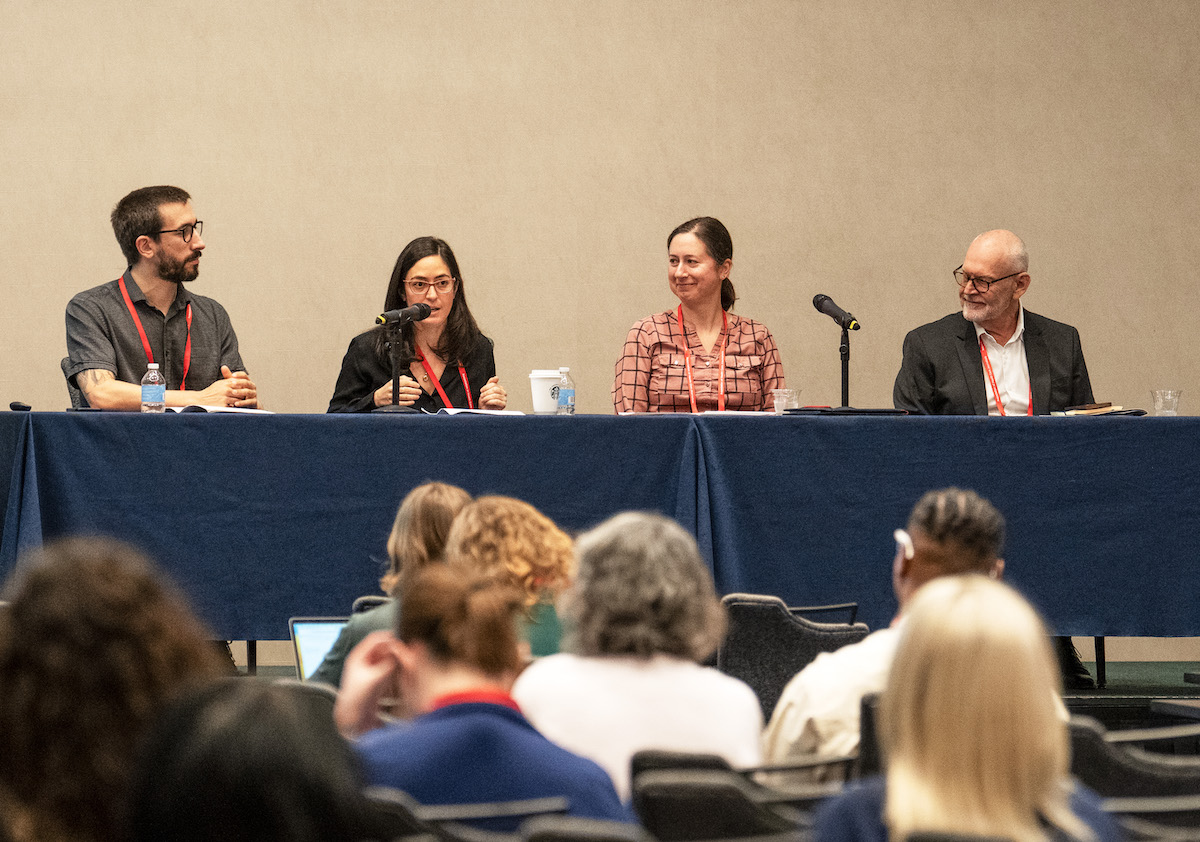Panelists speak during the HJ25 session about ghost networks. Photo by Zachary Linhares
Chasing ghosts: Reporting on a hidden insurance practice hindering access to mental health care
By Jocelyn Wiener, California Health Journalism Fellow
You need mental health care. Your health insurer offers a list of possible providers.
You call.
And call.
And call.
Some providers tell you they’re no longer taking your insurance. Others say they aren’t accepting new patients. Still others are retired. One or two might be dead.
Welcome to your ghost network.
At a Health Journalism 2025 panel about this practice, which pervades modern American health care, experts said the phenomenon is widely known among health insurers. A ghost network is a health plan directory in which many of the listed providers aren’t currently accepting patients insured by that plan. As a result, patients may find themselves calling dozens of providers, facing long delays to get treatment, paying high out-of-network costs, or simply going without care.
“It’s an intended feature,” said Wendell Potter, editor-in-chief of HEALTH CARE un-covered who previously served as head of communications for both Cigna and Humana. “It’s so maddening. We’re talking about human beings here who are in desperate need of care.”
He and the other panelists were unified in their advice that patients shouldn’t spend too much time working their way through provider lists before coming back to their insurance company and filing a grievance. They also recommended “being a squeaky wheel,” appealing not just to state regulators but to members of congress and state representatives.
“‘Appeal, appeal, appeal.’ That’s what I tell everyone,” said Sara Haviva Mark, founder and principal attorney of Mark Health Law. “Let’s change the calculus they’re making.”
She suggested that provider directories that include the same person listed five or 10 times should trigger a review.
Even in states, like California, with special laws in place to protect consumers in addition to the federal parity law, panelists say regulatory oversight is often fragmented and under-resourced. The insurance industry also has strong lobbyists who influence how regulations are written or make sure they are watered down before they are passed, Potter said.
Panelists provided an array of tips for journalists interested in delving further into the issue of ghost networks. Among them:
- Sarah Soroken, a licensed marriage and family therapist from the San Francisco Bay Area, suggested reaching out to unions that cover health care workers, which can provide both context about the issue and offer the perspectives of front line health care workers.
- Potter recommended checking in with your own state’s regulators. He said media coverage serves to educate the public and can inspire lawmakers to take action. “Cover this relentlessly and aggressively,” he said.
Joceylyn Weiner is a projects reporter for CalMatters with a focus on mental health and health.
